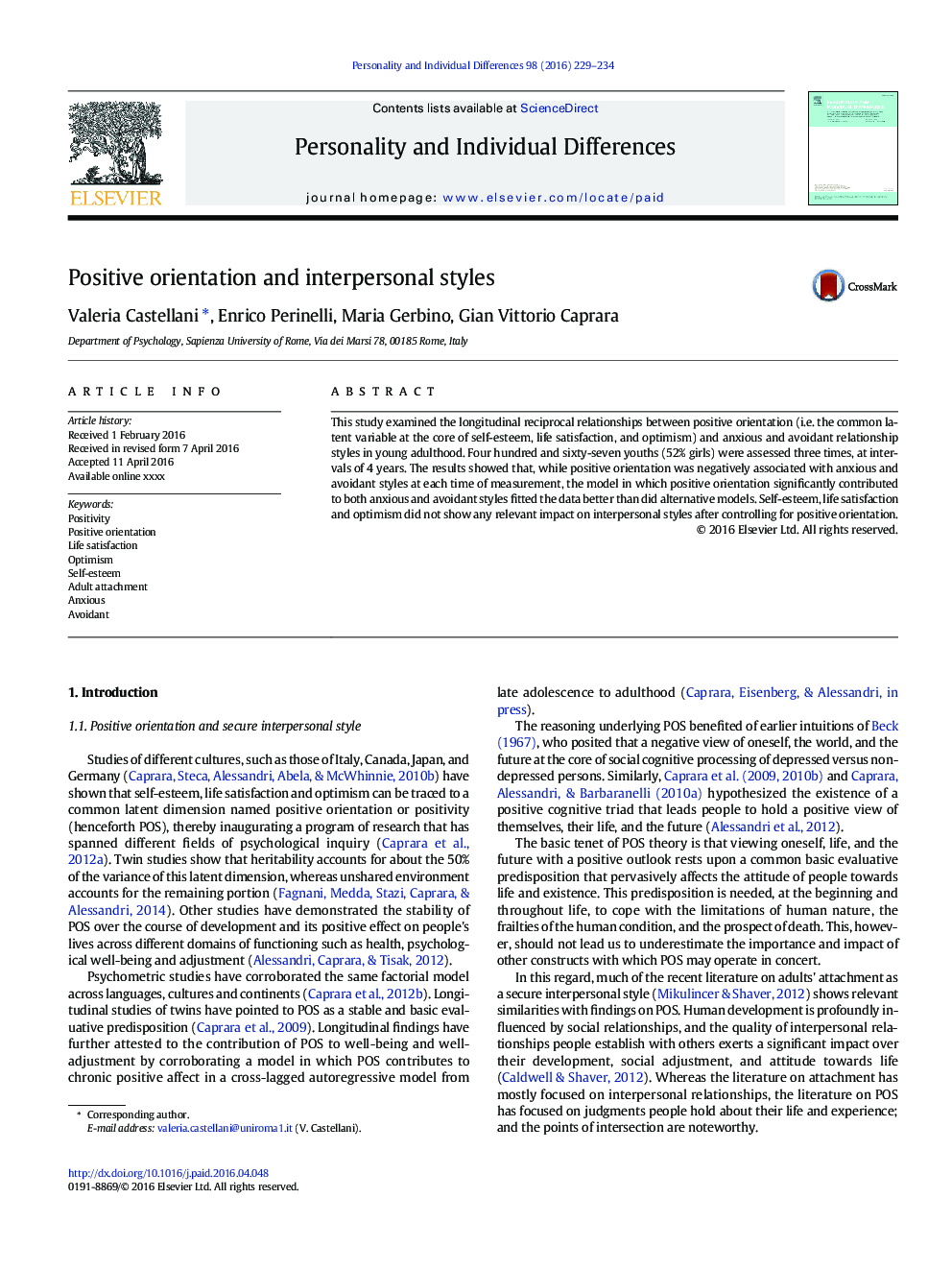| Article ID | Journal | Published Year | Pages | File Type |
|---|---|---|---|---|
| 7250031 | Personality and Individual Differences | 2016 | 6 Pages |
Abstract
This study examined the longitudinal reciprocal relationships between positive orientation (i.e. the common latent variable at the core of self-esteem, life satisfaction, and optimism) and anxious and avoidant relationship styles in young adulthood. Four hundred and sixty-seven youths (52% girls) were assessed three times, at intervals of 4Â years. The results showed that, while positive orientation was negatively associated with anxious and avoidant styles at each time of measurement, the model in which positive orientation significantly contributed to both anxious and avoidant styles fitted the data better than did alternative models. Self-esteem, life satisfaction and optimism did not show any relevant impact on interpersonal styles after controlling for positive orientation.
Keywords
Related Topics
Life Sciences
Neuroscience
Behavioral Neuroscience
Authors
Valeria Castellani, Enrico Perinelli, Maria Gerbino, Gian Vittorio Caprara,
